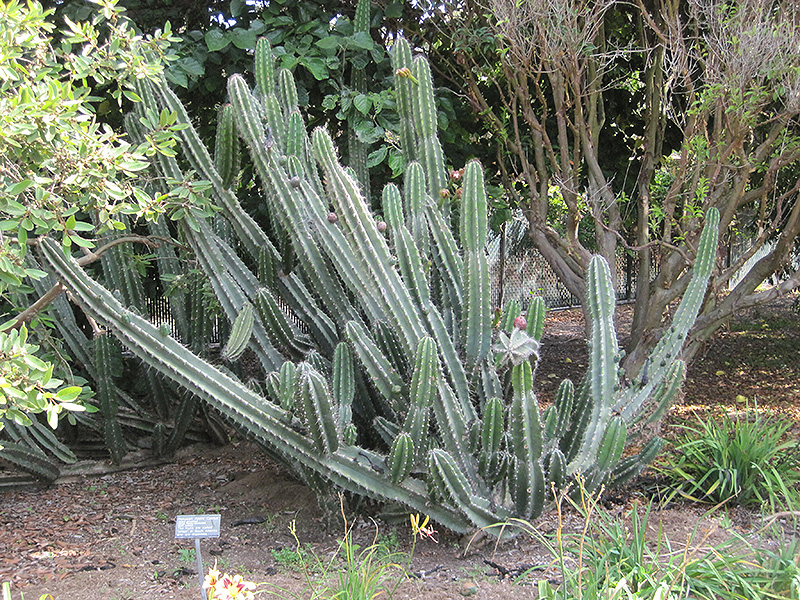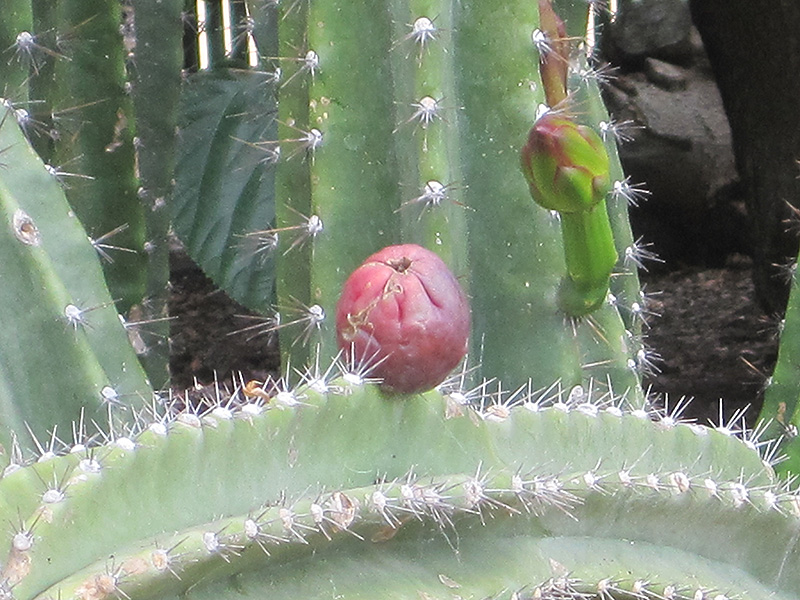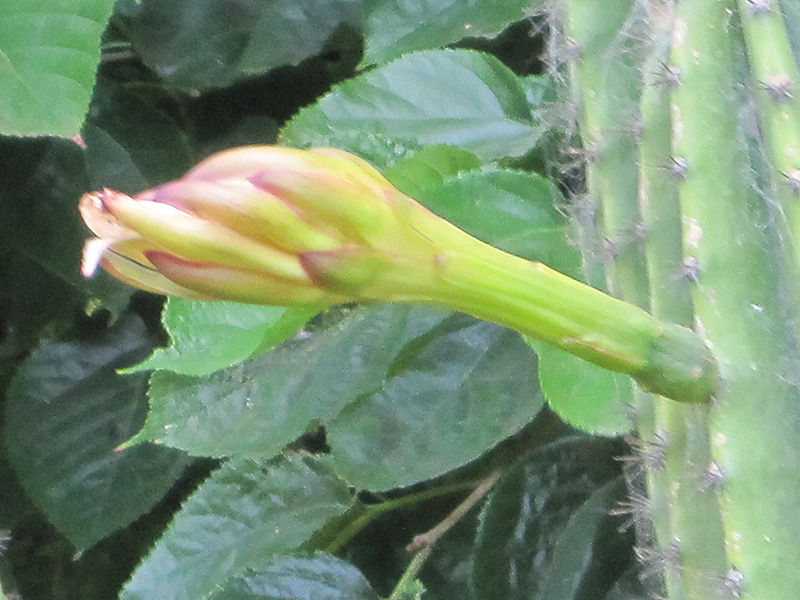Plant Search Tool
This is a 3rd party Knowledgebase and does not reflect actual stock
Height: 20 feet
Spread: 24 inches
Sunlight:
![]()
![]()
Hardiness Zone: 8b
Other Names: Column Cactus, Hedge Cactus, Cereus repandus
Description:
An erect, thorny columnar cactus with cylindrical gray-green to blue stems; large, cream colored nocturnal flowers open for only one night; edible, violet-red to yellow fruits appear in spring; an outstanding vertical accent for the garden or patio
Ornamental Features
Peruvian Apple Cactus is a member of the cactus family, which are grown primarily for their characteristic shapes, their interesting features and textures, and their high tolerance for hot, dry growing environments. Like all cacti, it doesn't actually have leaves, but rather modified succulent stems that comprise the bulk of the plant, and which are designed to hold water for long periods of time. This particular cactus is valued for its rigidly upright and cylindrical habit of growth consisting of a cluster of spiny ribbed bluish-green stem segments held tightly together. This plant has creamy white daisy flowers with buttery yellow eyes and pink bracts along the branches from early to late winter, which are interesting on close inspection. It features an abundance of magnificent red berries with deep purple blush from late winter to late spring.
This plant is primarily grown as an ornamental, but it's also valued for its edible qualities. The round sweet fruit is most often used in the following ways:
- Fresh Eating
- Preserves
Landscape Attributes
Peruvian Apple Cactus is a large succulent evergreen plant with a strongly upright, cylindrical form. As a type of cactus, it has no true foliage; the body of the plant is wholly comprised of a tight cluster of spiny bluish-green stems which are prominently ribbed. With age, this plant will eventually develop a woody gray 'trunk' at its base.
This is a relatively low maintenance plant, and should never be pruned except to remove any dieback, as it tends not to take pruning well. It is a good choice for attracting birds to your yard, but is not particularly attractive to deer who tend to leave it alone in favor of tastier treats. Gardeners should be aware of the following characteristic(s) that may warrant special consideration;
- Insects
- Spiny
Peruvian Apple Cactus is recommended for the following landscape applications;
- Accent
- Vertical Accent
- Hedges/Screening
- General Garden Use
- Container Planting
Planting & Growing
Peruvian Apple Cactus will grow to be about 20 feet tall at maturity, with a spread of 24 inches. It is often either grown as a solitary specimen or permitted to grow into a broader colony as part of a garden composition. It grows at a slow rate, and under ideal conditions can be expected to live for 80 years or more.
This plant does best in full sun to partial shade. It requires an extremely dry, well-drained growing location, and will usually die in standing water. It is considered to be drought-tolerant, and thus makes an ideal choice for a low-water garden or xeriscape application. Like most succulents and cacti, this plant prefers to grow in poor soils and should therefore never be fertilized. It is not particular as to soil pH, but grows best in sandy soils, and is able to handle environmental salt. It is somewhat tolerant of urban pollution. This species is not originally from North America.
Peruvian Apple Cactus is a fine choice for the garden, but it is also a good selection for planting in outdoor pots and containers. Because of its height, it is often used as a 'thriller' in the 'spiller-thriller-filler' container combination; plant it near the center of the pot, surrounded by smaller plants and those that spill over the edges. It is even sizeable enough that it can be grown alone in a suitable container. Note that when growing plants in outdoor containers and baskets, they may require more frequent waterings than they would in the yard or garden. Be aware that in our climate, most plants cannot be expected to survive the winter if left in containers outdoors, and this plant is no exception. Contact our experts for more information on how to protect it over the winter months.








